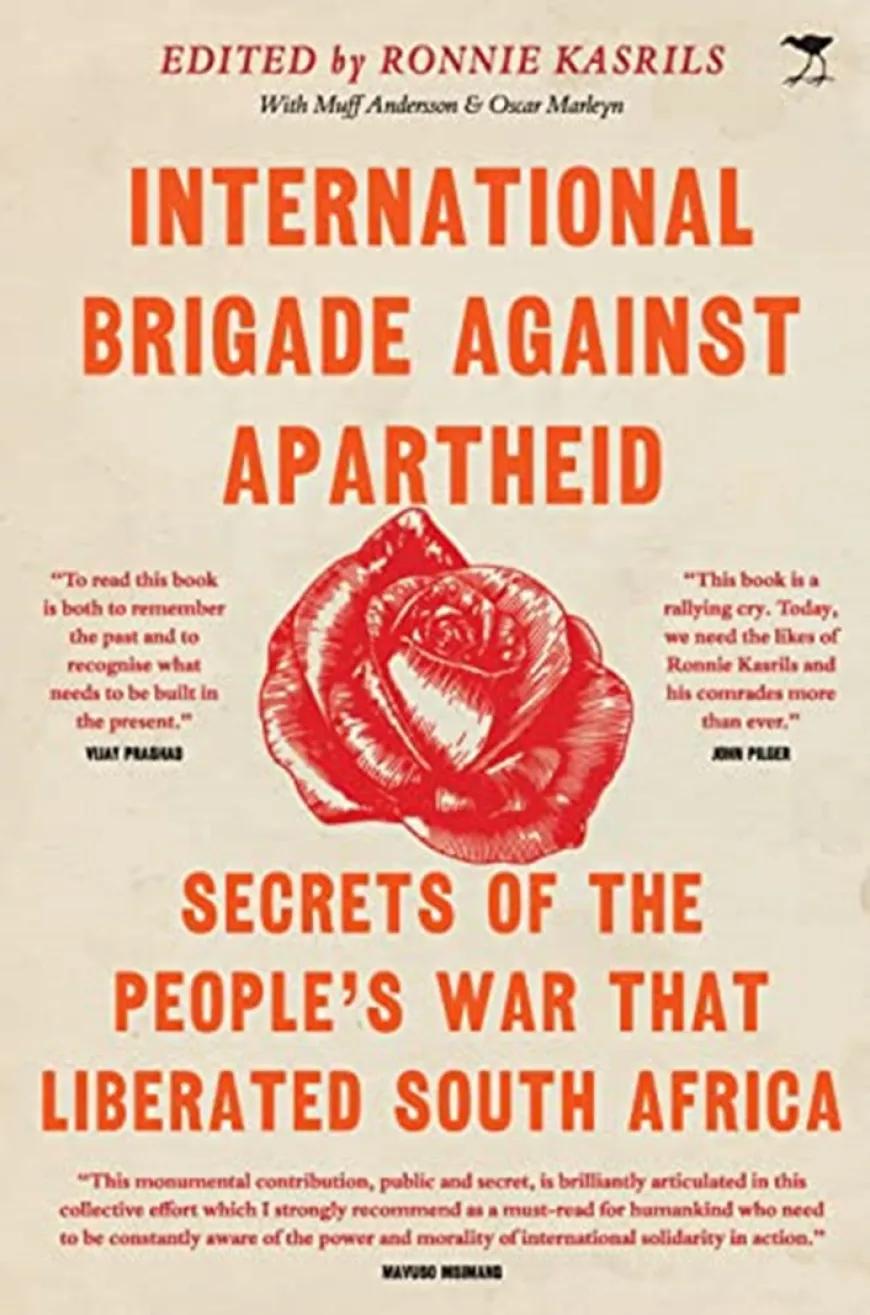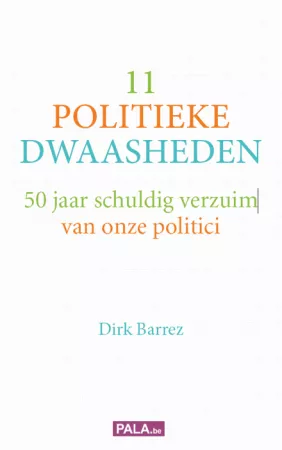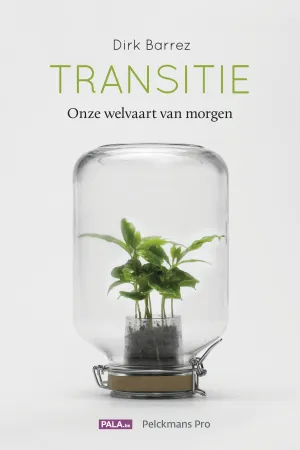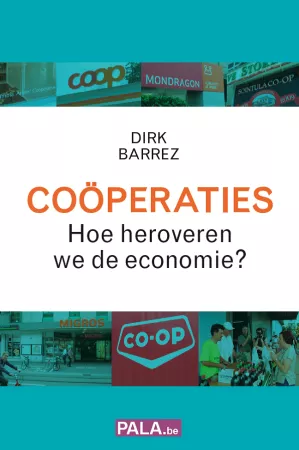
A brief history of pro- and anti-apartheid in Flanders

During the heydays of apartheid, Flanders featured one of the world’s most archaic pro-apartheid lobbies. It is tempting to point to language affinity as the main explanation. But that would be short-sighted. This article explains that something more fundamental was at work. It also argues how the Leuven based Action Committee on Southern Africa (AKZA) adapted its anti-apartheid strategy to constitute a broad-based coalition in Flanders to better hit where it hurt. It concludes with a personal takeaway and lesson.
From Boerensympathie to apartheid friends
Historically, Flemish and Afrikaner elites had a lot in common apart from similarities in language. (1) At the establishment of Belgium in 1831, sections of the Flemish cultural, political and economic elites felt discriminated against in the new bilingual kingdom. Most of the economic and political levers of power were firmly in the hands of a dominant francophone bourgeoisie. French was the lingua franca in the justice system, large parts of the bureaucracy, academia, and political life. Unsurprisingly, a Flemish avant-garde was on the lookout for effective nationalist vehicles to strengthen their power base and numbers.
At about the same time, in 1835, the first Boer settlers in South Africa started on a Great Trek north-eastward. They trekked from the Cape into the interior to escape British colonial rule and to preserve the right to hold slaves. The Boers, or Afrikaners as they became known, created the independent Boer Republics of Orange Freestate and Transvaal soon thereafter. This rather dangerous trek, subsequent annexures by Britain and two boer wars against the Brits further shaped a particularly militant and exclusive white Afrikaner nationalism. Its militant mythology of preservation of the Afrikaner identity was the battle cry to gain political hegemony in the newly created Union of South Africa (1910).
The gruesome Second Boer War (1899-1902) in particular - as widely reported by the first war journalists - triggered popular support in a number of countries, as well as in major Belgian cities, both Francophone and Flemish. But over time, this Boerensympathie (sympathy for the Boers) waned; except in Flanders. Language or other culture related affinities certainly played a role. But more importantly, the militancy of the Afrikaner nationalism slowly began to inspire some Flemish cultural elites. The pivotal power of identity-based, nationalist mythology for the upliftment of the oppressed Volk, Afrikaner and Flemish, and for winning elections, was recognised by both. The Afrikaner Nationalist Party was the first to gain the absolute majority of votes narrowly but successfully in 1948 and thus gain political hegemony. This victory further inspired a relatively small, but influential group of Flemish nationalists.
After the Second World War socio-economic odds in Belgium changed dramatically too. The post-war Marshall-plan kickstarted an economic transformation in Flanders. Over time, Flanders would become the economically richer region of the country. Bilingualism became the official policy for national institutions. Further shifts in the political and social balance of power in the seventies and eighties resulted in splits of the Belgian political parties, trade unions and socio-cultural organisations into separate Dutch speaking and Francophone units. All this contributed to the creation of a Belgian federal state in 1993, a process that is still ongoing until today.
During the apartheid years, Belgian foreign policy and economic relations with South Africa were largely comparable with those of many Western countries. Apart perhaps from some idiosyncrasies such as the Cultural Agreement that the Belgian government signed with the white minority government in Pretoria (1954). But the intensification of the struggle against apartheid in South Africa in the seventies and the growing international and Belgian demonstrations of solidarity alarmed Flemish - mainly nationalist - proponents of aparheid.
A few days after the murder of Steve Biko in October 1977, two hundred conservative prominent Flemings from all walks of life formed a new pro-apartheid lobby, Protea. They were also alarmed by the Belgian government’s cancellation and the Flemish government’s suspension of the Cultural Agreement after an upsurge of political protests and anti-apartheid demonstrations. Protea joined a few older lobbies (2) to unashamedly propagate apartheid as the best bet for the survival of the Broedervolk, for separate development of the black majority and for the West to keep communism out and strategic riches in. It involved prominent people with the Belgian public broadcaster, as well as in key political, military, social, cultural, religious, economic and financial circles.
The former Christian democrat minister of Finance and CEO of the Christian Kredietbank, André Vlerick, headed this noisy and rather influential Flemish lobby group. Only much later, it would appear just how dangerously toxic his particular mix of Boerensympathie, racial prejudice, anti-communism and financial clout would be. (3) In the eighties, we documented the Kredietbank’s involvement in financing South Africa’s arms industry, other parastatals and at least one independent homeland.
But only much later, in 2018, a South African think tank, Open Secrets, and Hennie van Vuuren revealed how André Vlerick had had direct talks with President P.W. Botha at the height of state repression. They documented how one of the daughter companies of the Kredietbank - Kredietbank Luxemburg - had fortified the apartheid military security state apparatus by illegally facilitating more than two thirds of all weapons’ transactions, despite the mandatory arms embargo by the UN Security Council.
The choice for region-based AA activism - broadening the coalition by narrowing the agenda
Three organisations (4) were specifically dedicated to fighting apartheid in Belgium. Especially after the mid-seventies their activities increased, both at national and regional levels. Though different in make-up and historical background, they had lots in common with one another and with most anti-apartheid organisations in the West: all three supported the ANC and its armed struggle, and all three campaigned for the total isolation of apartheid South Africa. Though they often worked together, some of their campaigning strategies and target audiences differed as the contexts in which they were active varied.
The Action Committee on Southern Africa, or AKZA, grew out of university-based international solidarity movements. It operated on the Belgian and Flemish scenes, but decided - in response to the changing conditions in South Africa and Belgium in the beginning of the eighties - to alter its campaigning strategy. As it was difficult in the institutionally and socially tumultuous Belgian context to form an action-oriented coalition in the whole of the country, it started a round of conversations with the largest social movements in Flanders: non-governmental development organisations, trade unions, church bodies such as religious congregations, special interest groups, youth wings of political parties, etc... The purpose was to find common ground for a broad-based coalition in support of effective sanctions to weaken the apartheid state.
This proved to be very time-consuming. I remember how we sat down with some of the major social and cultural organisations - some with membership in the millions - to sort out their questions or concerns related to the nature of the struggle, the menu of sanctions to prioritise, the types of pressure points and the concrete actions to take in order to sensitise their own constituencies and a broader public. We compromised over detail, but persisted on principle. Thus, we were able to constitute one of the broadest coalitions in Belgium and in Flanders on issues related to international solidarity: the Flemish Anti Apartheid Coalition, or VAAK.
In 1986 VAAK launched its first collective call for action targeted at those Belgian banks that beefed up the apartheid economy and its parastatals. Especially the christian oriented Kredietbank was heavily implicated. The action model included among other things sensitisation, divestment, talks with CEOs, protests at shareholder meetings, etc. VAAK launched a second campaign, a consumer boycott of South African agricultural products. This time the coalition was broadened with the main consumer organisations, and with a network of local anti-apartheid cells that was built up over the years. These local cells consisted of dedicated activists who were prepared to engage in sensitisation and short-term, direct actions.
On the party political front, AKZA and the Comité Contre le Colonialisme et l’Apartheid mobilised support of parliamentarians across the political spectrum - excluding right wing extremists - to join the Association of West European Parliamentarians for Action Against Apartheid, AWEPAA. Both fed the political debates in the Belgian and Flemish parliaments by providing AWEPAA members with ammunition to counter the pro-apartheid lobby (one in four parliamentarians belonged to one or other such lobby) and to set an alternative agenda.
By the time of South Africa’s first democratic elections in 1994, Belgian and Flemish policies towards South Africa had changed considerably. The Belgian government supported efforts to level the playing field in the run up to these elections. At the Flemish level, last ditch efforts by conservative Flemish nationalists to rescue Afrikaans (for fear that it would disappear) and Afrikaner privileges were neutralised. Instead, the Flemish parliament and government backed the new, inclusive language policy of the ANC. Both Belgian and Flemish governments started aid programmes for South Africa’s Reconstruction and Development Programme.
This political mindshift was tellingly illustrated when the Truth and Reconciliation Commission started its multilingual hearings in 1996. Perpetrators and victims of apartheid were enabled to testify in their mother tongue. South Africans could pride themselves of this huge homegrown undertaking. Yet it was somehow rewarding to notice that Flanders had provided for the translation facilities, and that Belgium had financed the training of the team of translators.
My personal takeaway and lesson
Lessons from anti-apartheid campaigning cannot simply be transplanted to different contexts and to different international solidarity campaigns. So perhaps it is safer to choose one takeaway and one generic lesson from my anti-apartheid experiences in the Flemish, Belgian and European contexts.
One takeaway: The imposition of a partial state of emergency in 1984 in South Africa triggered a reflection within AKZA. What were the most effective pressure points in the specific contexts of Belgium and of Flanders; and what about the inevitable trade-offs? It proved to be most effective a) to concentrate efforts on broadening the anti-apartheid coalition in Flanders, and b) to mobilise behind a narrower - but more action oriented - sanctions agenda. The time and energy invested in dialogue and networking with such a broad and diverse coalition paid off. This broad coalition also proved to be highly useful for other campaigns, such as the one for the release of Helene Passtoors (see elsewhere in this volume) and other political prisoners.
My main generic lesson: The quality of information and knowledge about the context - in South Africa, internationally, and in Belgium - was crucial for building trust, for navigating uncertainty, for developing preparedness, for adapting to changing environments, for identifying pressure and tipping points, and importantly for broadening credibility. Inevitably, such knowledge is partial, with numerous unknowns and gaps. Plausibility - rather than certainty - is the name of the game. So it is a constant struggle to figure out how power and politics play out in a particular context, what direction change may take, how economic interests block or drive change, which internal actors play key roles in driving change, and, how - or if - external actors can engage meaningfully. Anti-apartheid networks, publications and quality research were crucial in that respect. Recently, some communities of practice have been sharing experiences about a wide range of current dynamics of international solidarity. They have developed and updated analytical tools (5) that help those who are involved in such dynamics unpack and understand the multiple political economy actors and factors affecting change and shaping the context in which to make choices.
Jan Vanheukelom
This is te original contribution by Jan Vanheukelom for the book International Brigade Against Apartheid - Flanders: regional variations in shaping pro- and anti-apartheid, 21 August 2021
Voetnoten
(1) Afrikaans, the language of the Boers or Afrikaners, resembles Dutch and Flemish. Flemish is spoken in Flanders and is a slight variation of Dutch as spoken in the Netherlands.
(2) A fuller account of pro-apartheid lobbies in Belgium can be found in: Isabelle Delvaux. 2014. Ces Belges qui ont soutenu l’apartheid. Organisations, réseaux et discours.
(3) See also: Hennie van Vuuren. 2018. Apartheid, Guns and Money. A tale of profit. And: Jan Vanheukelom. International crimes during apartheid. Why Cyril Ramaphosa is still paying South African debt to foreign banks? Blog, May 2018
(4) Boycot Outspan Actie, BOA (Antwerp); the Action Committee on Southern Africa, AKZA (Leuven); the Comité Contre le Colonialisme et l’Apartheid, CCCA (Brussels). For more information on their activities, see contributions by Paulette Pierson-Mathy and Jan Vanheukelom: SADET. 2008. The Road to Democracy in South Africa. Volume 3. Part 1.
(5) My daily personal go-to-guide is the user-friendly, up to date and witty interactive blog by Oxfam’s strategic advisor Duncan Green. It provides a regular platform for exchange of experiences, insights and analyses on getting underneath the skin of power and politics on a wide range of issues of international solidarity. Political economy analytical tools can be consulted with The Policy Practice, with ECDPM (especially on the political economy of Europe-Africa relations), with ODI and Abts Associates. Further guidance on such analyses and on adaptive ways of engaging in international solidarity can be accessed through networks or conduits such as Thinking and Working Politically and the Developmental Leadership Programme. The Mandela School of Public Governance in Cape Town University is an excellent academic outfit for developing political economy approaches to research and action, while also inspiring strategic public leadership in Africa.
You’re invited to send your thougt-out comments to infoATpala.be
Reproduction of this article is permitted for non-commercial and non-subsidized organizations with citation of author and source, with web link. We would like to hear from you | Commercial organizations contact info@pala.be prior to publication.
Read it all to the end? And appreciated the article? Your support for Pala is welcome on account number BE66 5230 4091 1443 of Pala vzw, Leuven, Belgium.


